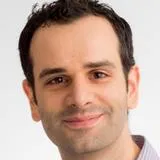All outputs are possible on a quantum computer, as quantum mechanics is inherently based on probabilities. This poses a challenge when it comes to making them reliable."
Dr George Booth
20 June 2023
King's scientists awarded two research grants to make quantum computing more reliable
The projects aim to improve our ability to test these technologies as well as supporting software developers to use them.

King’s researchers in collaboration with the University of Oxford have been awarded government funding for two projects aimed at making quantum computers more reliable and trustworthy, to enable more widespread use of this technology.
Totalling around £1 million, the grants were awarded by Engineering and Physical Sciences Research Council (EPSRC) as part of the National Quantum Technologies Programme - the UK government’s effort to drive UK research and expertise in quantum computing.
Harnessing the microscopic world of quantum mechanics, quantum computers promise a form of computing with unprecedented capability, which will transform the power of computing for certain applications. Whilst they have developed substantially in recent years, there remains a significant gap in the development of approaches to robustly test these devices, to ensure they perform tasks in an intended manner and can be rolled out more widely.
The researchers’ first project, 'Model-based monitoring and calibration of quantum computations' (ModeMCQ), aims to create a general framework to underpin reliable quantum computing, as well as specific tools to monitor and calibrate outcomes. It brings together King’s Physicists Dr George Booth and Dr Joe Bhaseen, and Computer Scientist Professor Mohammad Reza Mousavi, as well as Professor Nobuko Yoshida from the University of Oxford.
Dr George Booth from the Department of Physics said, "all outputs are possible on a quantum computer, as quantum mechanics is inherently based on probabilities.
"This poses a challenge when it comes to making them reliable, as it can be difficult to know if outputs are the result of this probablistic nature, or hardware errors. This project will help us start to address this issue."
The second grant, Verified Simulation for Large Quantum Systems (VSL-Q), will see the King’s academics go even further by creating software to transform the ability of computer programmers to work within quantum computing systems. The technology will mitigate the unreliability of the technology, by automatically monitoring issues as they arise and changing the underlying quantum programme to deal with these issues.
Professor Mousavi, an expert in software testing techniques in the Department of Informatics explains, “a key enabler to making quantum computers more reliable is developing an end-to-end verification trajectory, from high-level programming languages to low-level implementations on different physical platforms.
“Our projects will develop algorithms to aid programmers by measuring deviation and error as it occurs. This monitoring then feeds into a layered architecture we are building, to enable layer by layer translation that adapts to the underlying unreliability of the hardware, making the programme do what it is supposed to.
"By automatically responding to issues as they occur, the software frees up the programmer to get on with their job of programming and will enable more wide-spread use of quantum computing.”
By automatically responding to issues as they occur, the software frees up the programmer to get on with their job of programming and will enable more wide-spread use of quantum computing."
Professor Mohammad Reza Mousavi
Research into quantum technologies involves close collaboration between computer scientists specialising in programming languages, formal verification, and testing, and quantum physicists with expertise in quantum simulation and algorithms for large-scale quantum systems.
King’s physicists Dr George Booth and Dr Joe Bhaseen said, “We’re in an exciting era where some of the most mysterious and exciting laws of physics are playing a key role in developing the computers of the future.”
“Quantum computers run on qubits - made using physical systems, such as the spin of an electron. We are beginning to combine these qubits into larger coherent arrays directly controlled in the lab, allowing the start of the era of quantum computation.
“This opens exciting prospects for their use in simulating physical quantum phenomena in nature, covering a range of fields and helping us answer important questions. From determining the strength of chemical bonds, to better understanding how light interacts with solids, to discovering new materials and catalytic properties, there is much to explore.”
“We’re in an exciting era where some of the most mysterious and exciting laws of physics are playing a key role in developing the computers of the future.”
Dr George Booth and Dr Joe Bhaseen
Professor Mousavi added, “these two major research grants help further our vision at King’s to integrate and amplify our strength in quantum information technology. Working with partners, we are developing an interdisciplinary research ecosystem in this area to nurture current and future talent and expertise in quantum technologies.”



